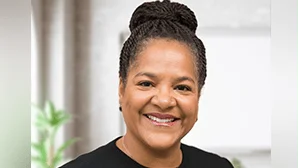Attorney General Dana Nessel | Official website
Attorney General Dana Nessel | Official website
LANSING – Today, Scott Teter, Division Chief of the Department of Attorney General Financial Crimes Division and head of the Elder Abuse Task Force, testified before the Senate Civil Rights, Judiciary, and Public Safety Committee in support of House Bills 4909, 4910, 4911, and 4912. Michigan Attorney General Dana Nessel announced that this bill package is a first step toward implementing reforms to Michigan’s guardianship statutes.
“I’ve seen firsthand how Michigan’s guardianship and conservatorship system has failed vulnerable adults in our state,” Nessel said. “I am glad some improvements are being made, but we can’t stop here. I will continue to push for the long-awaited reforms as recommended by our Elder Abuse Task Force, which will help create a system that truly treats all Michiganders with the dignity, compassion, and autonomy they deserve.”
"A system that ignores the rights of vulnerable adults and dehumanizes them and ignores the concerns of family members doesn’t do justice and must be changed,” Teter said. “There are common-sense reforms in these bills that are long overdue that will help fix a broken system, but we are not done yet and have more work to do.”
Teter’s testimony highlighted specific concerns faced by the Department, the Elder Abuse Task Force, and their partners under the current system. The proposed legislation aims to address these issues by:
- Requiring courts to make findings of fact if a person with priority for appointment, such as a family member, is passed over in favor of a professional guardian;
- Establishing a clear asset and income threshold above which the appointment of a conservator is required;
- Requiring guardian and conservator letters of authority to expire after 15 months;
- Clarifying and expanding the guardian ad litem’s responsibilities;
- Improving protections for wards when professional guardians seek to remove them from their homes;
- Requiring professional guardians to file petitions seeking court authority to move wards;
- Mandating courts appoint guardians ad litem or counsel for wards where appropriate before authorizing moves to new residences;
- Enhancing basic standards for medical reports used in guardianship and conservatorship hearings;
- Refining the process for emergency petitions for guardianship/conservatorship to ensure an actual emergency exists.
In his testimony, Teter also encouraged legislators to adopt additional legislation creating family consent laws and Personal Protection Orders (PPOs) for elder/vulnerable adults. He provided an overview of the guardian certification initiative.
The Department expressed support for Senate Bill 656 which would restrict investment types allowed by conservators managing estate property. This bill requires conservators to invest according to the Michigan prudent investor rule and mandates investments through brokerage firms insured by the United States Securities Protection Corporation. Additionally, it prohibits investments in cryptocurrency.
Michigan's Elder Abuse Task Force was launched in 2019 with more than 55 organizations from public, private, and nonprofit sectors collaborating against elder abuse. The task force comprises over 100 individuals divided into seven committees working on nine initiatives including wholesale reforms like certification and training requirements for professional guardians.
Achievements include adopting a Vulnerable Adult Incident Report form used statewide by law enforcement along with related training sessions. The Financial Exploitation Prevention Act was also passed ensuring mandatory reporting from financial institutions on suspected fraud or exploitation. Another law added financial advisors and securities brokers as mandatory reporters. The Uniform Power of Attorney Act becomes effective July 1, 2024 making powers of attorney more accessible through standardized forms within statute.
More than 73,000 older adults in Michigan suffer from elder abuse involving neglect or exploitation. Residents seeking elder abuse resources can call 800-24-ABUSE (22873) or report suspected abuse at 855-444-3911.
___




 Alerts Sign-up
Alerts Sign-up